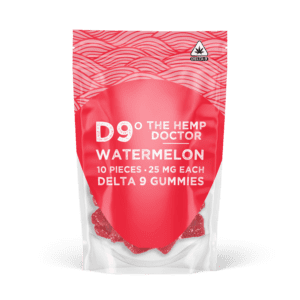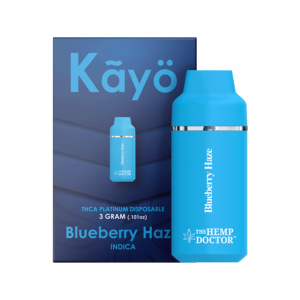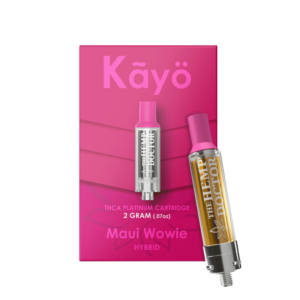If you can’t stop thinking about opening a store selling hemp products, you’re not alone. These products have exploded in popularity since the passage of the Farm Bill of 2018 legalized their sale nationwide. You can find hemp stores in most cities with many products, including flower buds, vapes, and concentrates.
Naturally, many entrepreneurs are concerned about the regulatory burden of selling a product that was recently declared illegal. Though cannabinoids have thrived over the past five years since their initial legalization, many may suspect that getting started is a hassle.
Becoming a cannabinoid business owner may be easier than you think. In this short guide, you’ll learn about some licensing requirements, when they’re needed (and not needed), and where you can find more information.
What Licenses and Permits Do Hemp/CBD Businesses Need?
The most important thing to remember about licensing and permitting is that (with the exception of sales tax license) the answer depends on your state. Depending on the state where you want to open your hemp store, you may need to work with a state agency, such as your—
- Department of Commerce
- Department of Public Health (Food Services)
- Department of Agriculture
- Special Hemp Licensing Boards
In most cases, you’ll be working with these boards to secure the following types of licenses and permits—
- Business Licenses: These licenses are required to operate in nearly every state, no matter what kind of business you are forming. Having one confirms that you are incorporated and registered as a business with your state.
- Business Formation: You must submit a type of business plan before beginning sales. This process involves making and reporting important decisions determining your liability, tax burden, and other details. Here are some examples of business formations that may apply to retail hemp businesses:
- Sole Proprietorships
- Partnerships
- Limited Liability Company (LLC)
- Corporation
- Sales Tax Permit: This license allows you to collect sales tax for your state (where applicable) and the IRS. The license is obtained from the IRS and then submitted for verification to the state.
- Product Permits: You may need to apply for state, county, city, or township licenses depending on the products you choose to carry. You’ll learn more about these in the next section.
- Reseller/Wholesale License: This license allows you to buy from wholesalers. When you contact wholesalers to order cannabinoid products, they will ask for this license as part of their application process.
It’s important to note that most of these licenses are required for any kind of business. In most states, hemp stores don’t need to jump additional hurdles compared to other retailers.
Hemp, CBD, and Delta-8 businesses also don’t need to jump through all the hurdles that cannabis businesses do. In contrast, selling hemp products doesn’t typically require background checks, major fees, or other hurdles in the cannabis licensing process.
What Are the Steps to Licensing My Hemp Store?
Opening your business may require several licenses and permits. In most cases, you’ll want to apply for these permits in the following order—
Step 1: Apply for Your Business License
First, apply for your business license. You’ll need to declare how your business will be structured and what name you intend to use for it (you’ll need to ensure it is original).
Our home state of North Carolina provides a complete guide for completing this step. Check your Department of Commerce website for similar guides for your state.
This may require an application fee or license fee, but not in all states. The costs often range between $10-100 dollars.
Step 2: Apply for Your Sales Tax License
Once you have a business license, you can apply for your state’s sales tax license.
This process can be complex, so let’s use North Carolina as an example of how and why it is done. This state helpfully provides a guide detailing who must register for sales and use taxes.
If you visit the link, you’ll see that this state requires this license for retailers planning to engage in any of the following activities—
- Selling tangible personal property at retail
- Selling and providing taxable services
- Providing rentals of accommodations
- Selling tangible personal property, certain digital property, or providing a taxable service at a specialty market or other event
- Selling taxable service contracts
- Charging admission to an entertainment activity
- Making marketplace-facilitated sales
Your state may have different requirements.
Step 3: Apply for Specialized Permits/Local Licenses
As the next step, you’ll need to choose what products you will carry based on the legal situation in your state and apply for the appropriate permits. These permits may not only be required by your state but also by your city or county.
Local governments may require licenses to sell food or adult-use products. Your municipality may also require land use permits, zoning permits, and other real estate permits before you complete certain license applications.
However, you don’t always need permits at all. In North Carolina, for example, the state Department of Agriculture has issued the following guidance—
“Do I have to register or get a license to sell hemp or hemp products?
There are currently no laws requiring a special license or registration to sell hemp or hemp products (often CBD) in the State of North Carolina. Keep in mind that only an individual with a cultivator’s license can be in possession of or sell viable seed or living hemp plants. You will need to establish your business with the state, if you haven’t, for tax and other legal purposes.”
Many states will require you to be licensed to sell packaged food to the public, and you must confirm you are aware of the state laws around consumable product labeling and age restrictions.
Where Do I Find Licensing Information for My State?
There are several reliable sources that you can use to find licensing and permitting information for cannabinoid businesses. If you want the best information possible, you should work with a lawyer practicing in your state or your local Department of Commerce.
Speak to a Lawyer
A business lawyer in your area can provide nearly all of the advice you need to move forward. There are three primary reasons why you should consider a lawyer’s advice—
- Your lawyer can provide exact state-specific information regarding hemp
- Hemp laws are changing rapidly, and information here and in other sources may go out of date
- Lawyers can also help you with many other important legal matters
Contact Your State’s Department of Commerce
Each state’s Department of Commerce serves as a resource for businesses that plan to get started in the state. Most states provide full-time staff educated in the law and the steps businesses must take to operate legally.
As an example, our local North Carolina Department of Commerce offers a complete guide to registering your business in the state. You’ll be able to find a similar guide for your own area on most state Department of Commerce websites.
Find Out If We Can Ship Products To You
Licensing and permitting your cannabinoid business may be easier than you think. Many states will not require additional licenses and permits to open a hemp business. You can also reduce the need for permitting by carefully selecting the hemp items you make available for sale. With so few obstacles in place in most states, it’s simple to start a cannabinoid business. If you’re considering jumping into the cannabinoid/hemp business, we can help you get started. We carry the latest cannabinoids in all of the most popular forms.







